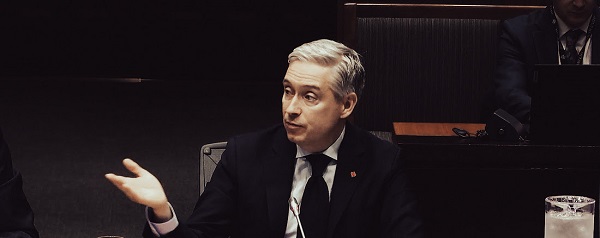Economy
Saskatchewan set to defy Trudeau gov’t, stop collecting carbon tax on electric home heat
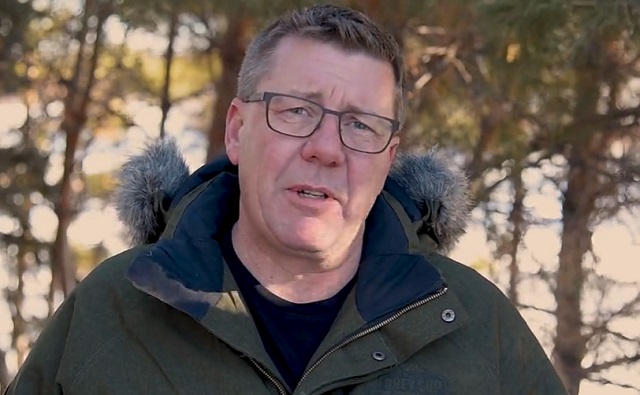
From LifeSiteNews
Premier Scott Moe is ignoring a threat from Liberal Prime Minister Justin Trudeau that he could serve jail time for failing to impose the tax
Saskatchewan Premier Scott Moe now says that starting January 1 his province will no longer collect a federally imposed carbon tax on electric heat in addition to natural gas despite a threat from the Liberal government of Prime Minister Justin Trudeau that he could serve jail time should he defy the feds.
Moe and Saskatchewan Party MLA Jim Lemaigreas made the announcement last Thursday in a video posted on X (formerly Twitter).
“We are going to need to determine who is heating their home with electricity and then estimate the percentage of their power bill that is being used for that heat,” Moe said.
Moe added that his government is working out how to stop collecting the carbon tax on electric home heat. Regardless, anyone using electric heat in the province or natural gas to warm their home will not pay a federal carbon tax.
According to Moe, extending the carbon tax exemption to electric heat makes sense because 15% of people in the province use it to heat their homes. The other 85% use natural gas to heat their homes.
January and February can bring brutally cold temperatures to many parts of the province, and natural gas-fired furnaces are best at handling extreme temperatures. However, many in the province, especially those in the north, use electric heaters to heat their homes.
Moe noted how Saskatchewan owns its natural gas utility SaskEnergy, which by extension means taxpayers own it. He said the move to stop collecting the tax is ideal given the province controls its utilities, which acts as a safeguard from federal overreach.
“Well, we also own the electrical utility, and that’s why our government has decided that SaskPower will also stop collecting the carbon tax on electric heat,” Moe said.
On October 30, Moe first announced that he would stop collecting the carbon tax on home heating starting January 1, after Trudeau suspended his carbon tax on home heating oil, which is almost exclusively used in Atlantic Canada to heat homes, and not in his province.
“I cannot accept the federal government giving an affordability break to people in one part of Canada but not here,” Moe said in a video posted on X.
Moe promised that if the exemption was not extended to all other forms of home heating in his province, he would tell SaskEnergy, which is a Crown corporation that provides energy to all residents, to stop collecting the carbon tax on natural gas. This, Moe said, would effectively provide “Saskatchewan residents with the very same exemption that the federal government has given heating oil in Atlantic Canada.”
Moe’s government has gone as far as introducing legislation to back the scrapping of the federal carbon tax on natural gas. The legislation will shield all executives at SaskEnergy from being jailed or fined by the federal government if they stop collecting the tax.
The Trudeau Liberal government, however, has refused to rule out jail time for Moe if he refuses to collect the carbon tax on home heating.
On November 3, Liberal Finance Minister and Deputy Prime Minister Chrystia Freeland avoided directly answering whether Moe would be criminally charged for refusing to collect Trudeau’s controversial carbon tax for home heating within the province.
Trudeau has said that “Canada is a country of the rule of law, and we expect all Canadians to follow the law,” he said.
“That applies to provinces as much as it applies to individual citizens,” he added.
Alberta Premier Danielle Smith is also fighting Trudeau’s carbon tax and has vowed to use every tool available to her government to take him on.
Indeed, after Canadian Environment Minister Steven Guilbeault brushed off Smith’s invocation of the “Sovereignty Act” as being merely “symbolic,” the Alberta leader warned him that her province will be building new gas-fired power plants regardless of his new “clean energy” rules.
Moe has court rulings to back up his defiance of Trudeau in asserting provincial autonomy
Two recent court rulings dealt a serious blow to the Trudeau government’s environmental activism via legislation by asserting the provinces have autonomy when it comes to how they use and develop their own natural resources.
The most recent was when the Federal Court of Canada on November 16 overturned the Trudeau government’s ban on single-use plastic, calling it “unreasonable and unconstitutional.”
The Federal Court ruled in favor of the provinces of Alberta and Saskatchewan by stating that Trudeau’s government had overstepped its authority by classifying plastic as “toxic” as well as banning all single-use plastic items, like straws, bags, and eating utensils.
The second victory for Alberta and Saskatchewan concerns a Supreme Court ruling that stated that Trudeau’s law, C-69, dubbed the “no more pipelines” bill, is “mostly unconstitutional.” The decision returned authority over the pipelines to provincial governments, meaning oil and gas projects headed up by the provinces should be allowed to proceed without federal intrusion.
A draft version of the federal government’s new Clean Energy Regulations (CERs) introduced by Guilbeault projects billions in higher costs associated with a so-called “green” power transition, especially in the resource-rich provinces of Alberta, Saskatchewan, New Brunswick, and Nova Scotia, which use natural gas and coal to fuel power plants.
Business executives in Alberta’s energy sector have also sounded the alarm over the Trudeau government’s “green” transition, saying it could lead to unreliability in the power grid.
The Trudeau government’s current environmental goals – in lockstep with the United Nations’ “2030 Agenda for Sustainable Development” – include phasing out coal-fired power plants, reducing fertilizer usage, and curbing natural gas use over the coming decades.
The reduction and eventual elimination of the use of so-called “fossil fuels” and a transition to unreliable “green” energy has also been pushed by the World Economic Forum (WEF) – the globalist group behind the socialist “Great Reset” agenda – an organization in which Trudeau and some of his cabinet members are involved.
Business
The Grocery Greed Myth

Haultain’s Substack is a reader-supported publication.
To receive new posts and support our work, please consider becoming a free or paid subscriber.
Try it out.
The Justin Trudeau and Jagmeet Singh charges of “greedflation” collapses under scrutiny.
“It’s not okay that our biggest grocery stores are making record profits while Canadians are struggling to put food on the table.” —PM Justin Trudeau, September 13, 2023.
A couple of days after the above statement, the then-prime minister and his government continued a campaign to blame rising food prices on grocery retailers.
The line Justin Trudeau delivered in September 2023, triggered a week of political theatre. It also handed his innovation minister, François-Philippe Champagne, a ready-made role: defender of the common shopper against supposed corporate greed. The grocery price problem would be fixed by Thanksgiving that year. That was two years ago. Remember the promise?
But as Ian Madsen of the Frontier Centre for Public Policy has shown, the numbers tell a different story. Canada’s major grocers have not been posting “record profits.” They have been inching forward in a highly competitive, capital-intensive sector. Madsen’s analysis of industry profit margins shows this clearly.
Take Loblaw. Its EBITDA margin (earnings before interest, taxes, depreciation, and amortization) averaged 11.2 per cent over the three years ending 2024. That is up slightly from 10 per cent pre-COVID. Empire grew from 3.9 to 7.6 per cent. Metro went from 7.6 to 9.6. These are steady trends, not windfalls. As Madsen rightly points out, margins like these often reflect consolidation, automation, and long-term investment.
Meanwhile, inflation tells its own story. From March 2020 to March 2024, Canada’s money supply rose by 36 per cent. Consumer prices climbed about 20 per cent in the same window. That disparity suggests grocers helped absorb inflationary pressure rather than drive it. The Justin Trudeau and Jagmeet Singh charges of “greedflation” collapses under scrutiny.
Yet Ottawa pressed ahead with its chosen solution: the Grocery Code of Conduct. It was crafted in the wake of pandemic disruptions and billed as a tool for fairness. In practice, it is a voluntary framework with no enforcement and no teeth. The dispute resolution process will not function until 2026. Key terms remain undefined. Suppliers are told they can expect “reasonable substantiation” for sudden changes in demand. They are not told what that means. But food inflation remains.
This ambiguity helps no one. Large suppliers will continue to settle matters privately. Small ones, facing the threat of lost shelf space, may feel forced to absorb losses quietly. As Madsen observes, the Code is unlikely to change much for those it claims to protect.
What it does serve is a narrative. It lets the government appear responsive while avoiding accountability. It shifts attention away from the structural causes of price increases: central bank expansion, regulatory overload, and federal spending. Instead of owning the crisis, the state points to a scapegoat.
This method is not new. The Trudeau government, of which Carney’s is a continuation, has always shown a tendency to favour symbolism over substance. Its approach to identity politics follows the same pattern. Policies are announced with fanfare, dissent is painted as bigotry, and inconvenient facts are set aside.
The Grocery Code fits this model. It is not a policy grounded in need or economic logic. It is a ritual. It gives the illusion of action. It casts grocers as villains. It gives the impression to the uncaring public that the government is “providing solutions,” and that “it has their backs.” It flatters the state.
Madsen’s work cuts through that illusion. It reminds us that grocery margins are modest, inflation was monetary, and the public is being sold a story.
Canadians deserve better than fables, but they keep voting for the same folks. They don’t think to think that they deserve a government that governs within its limits; a government that accept its role in the crises it helped cause, and restores the conditions for genuine economic freedom. The Grocery Code is not a step in that direction. It was always a distraction, wrapped in a moral pose.
And like most moral poses in Ottawa, it leaves the facts behind.
Haultain’s Substack is a reader-supported publication.
To receive new posts and support our work, please consider becoming a free or paid subscriber.
Try it out.
Business
Carney government plans to muddy the fiscal waters in upcoming budget

From the Fraser Institute
By Jake Fuss and Grady Munro
Rather than directly spend money on critical infrastructure such as roads, bridges, ports or even electricity grids—things that traditionally are considered capital investments—the government plans to spend money on subsidies and tax breaks to corporations (i.e. corporate welfare) under the umbrella of “capital investment”
The Carney government’s long-awaited first budget is almost here—expected Nov. 4—but Canadians may not recognize what they get. Early on, the new government promised a new approach to spending. Thanks to a decade of record-breaking spending under Justin Trudeau, the federal deficit sits at a projected $48.3 billion while total debt has eclipsed $2.1 trillion. But the Carney government’s plan announced this week appears to rely on accounting maneuvers rather than any substantive spending reductions.
According to the latest details released by the government, the Carney government will separate spending into two categories: “operating spending” and “capital investment.” Within this framework, the government plans to balance the “operating budget” within three years.
But of course, if the government eventually balances the operating budget, that doesn’t mean it will stop borrowing money to pay for“capital investment”—a new category of spending the government can define and expand whenever it deems necessary.
Currently, according to the government, capital investment will include any spending or tax expenditures (e.g. tax credits and deductions) that “contribute to capital formation”—the creation of assets (such as machinery or equipment) that improve the ability of workers to produce goods and services.
In other words, rather than directly spend money on critical infrastructure such as roads, bridges, ports or even electricity grids—things that traditionally are considered capital investments—the government plans to spend money on subsidies and tax breaks to corporations (i.e. corporate welfare) under the umbrella of “capital investment,” so long as this spending will somehow “encourage” capital formation. But clearly, corporate welfare doesn’t belong in the same category as the expansion of a critical port, for example, and the government shouldn’t pretend that it does.
Put simply, because the term “capital investment” is so broad and malleable, the government can seemingly use it whenever it wants. For example, to meet NATO’s spending target of 2 per cent of GDP, a key point of contention in Carney’s negotiations with President Trump, the Carney government could (inaccurately) categorize some defence spending as capital spending. And in fact, the Parliamentary Budgetary Officer—Ottawa’s fiscal watchdog—views the Carney government’s definition as “overly expansive” and suggests the inclusion of corporate tax breaks and subsidies will “overstate” the government’s actual contribution to the creation of capital.
This approach by the Carney government will not help Canadians understand the true state of federal finances. While Finance Minister François-Philippe Champagne recently said that the “deficit and the debt will be recorded in the same manner as in previous budgets,” on budget day and beyond the government will undoubtedly focus on the operating budget when communicating to Canadians. So, the government will only tell part of the story.
After years of fiscal mismanagement with large increases in spending and debt under the Trudeau government, Canadians need a government willing to make the tough decisions necessary to get federal finances back in shape. But the Carney government appears poised to shirk accountability and use tricks to cloud the true state of federal finances.
-

 Alberta1 day ago
Alberta1 day agoFact, fiction, and the pipeline that’s paying Canada’s rent
-
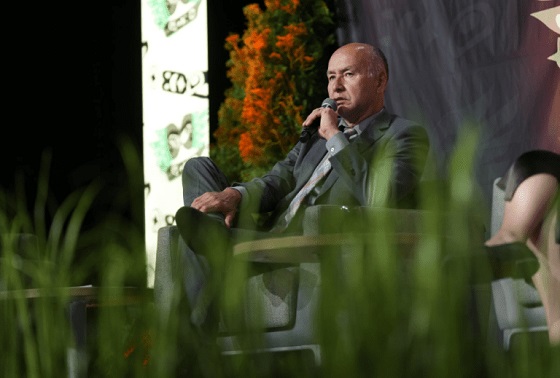
 Energy2 days ago
Energy2 days agoIn the halls of Parliament, Ellis Ross may be the most high-profile advocate of Indigenous-led development in Canada.
-

 Energy2 days ago
Energy2 days ago“It is intellectually dishonest not to acknowledge the … erosion of trust among global customers in Canada’s ability to deliver another oil pipeline.”
-
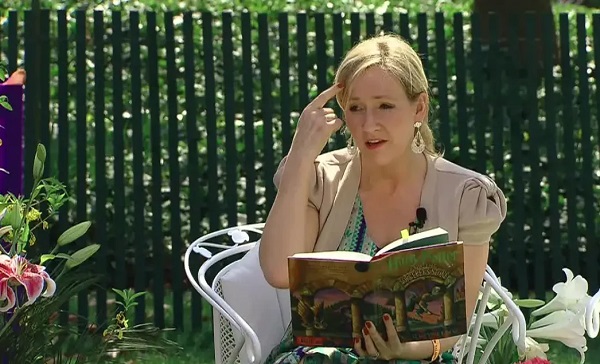
 Aristotle Foundation2 days ago
Aristotle Foundation2 days agoEfforts to halt Harry Potter event expose the absurdity of trans activism
-

 International18 hours ago
International18 hours agoTrump gets an honourable mention: Nobel winner dedicates peace prize to Trump
-

 Business10 hours ago
Business10 hours agoCarney government plans to muddy the fiscal waters in upcoming budget
-

 Bruce Dowbiggin2 days ago
Bruce Dowbiggin2 days agoCanada’s Humility Gene: Connor Skates But Truckers Get Buried
-
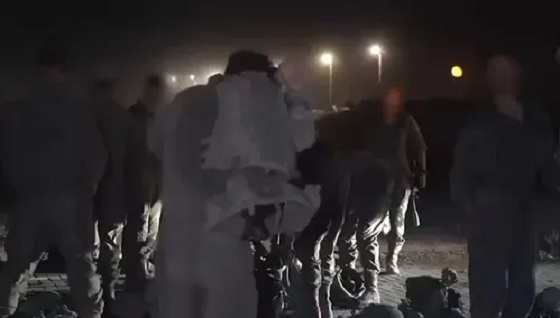
 International1 day ago
International1 day agoTrump-brokered Gaza peace agreement enters first phase






